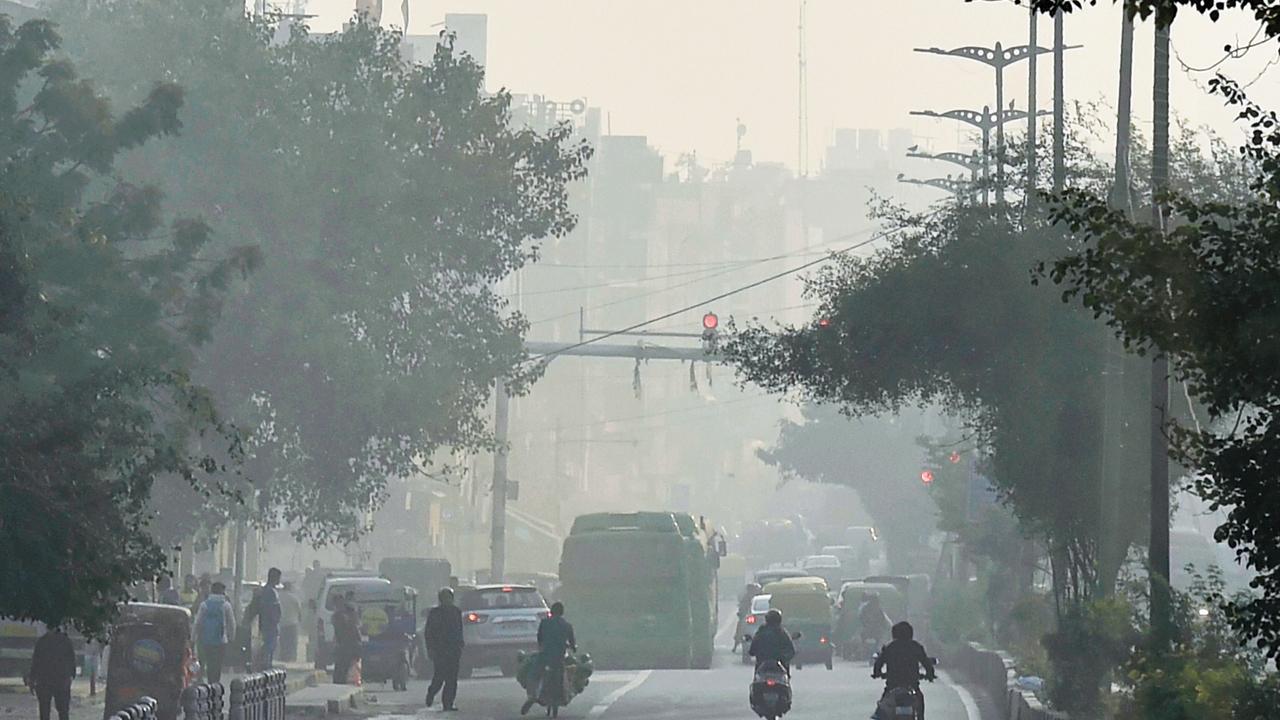Apex court slams the Centre, Delhi govt and bureaucracy for not making sincere efforts in taking measures to curb air pollution in the national capital

Vehicles ply on a road amid smog, in New Delhi, on Wednesday. Pic/PTI
The Supreme Court on Wednesday criticised both the Centre and the AAP government while blaming a lack of sincere efforts on both their parts for the serious air pollution situation in Delhi.
ADVERTISEMENT
The bench headed by Chief Justice N V Ramana and comprising Justices D Y Chandrachud and Surya Kant also criticised the bureaucracy for having developed an attitude of ‘don’t take any step’ for dealing with any situation. It pointed out that firecrackers were burnt in Delhi despite a ban.
“Bureaucracy has gone into inertia and they don’t want to do anything. For using sprinklers or water buckets, we have to say. This is the attitude of the executive. It is apathy and just apathy,” Bar and Bench quoted Justice Chandrachud as saying.
Justice Surya Kant observed, “You all say transport is main cause. We know all the gas guzzlers, hi-fi cars run on Delhi roads. Who will encourage them to stop this?”
The SC made the remarks after hearing submissions of both the Centre and the Delhi government, and said it needs clear answers on steps to curb air pollution in the capital. It has asked both the governments to implement ‘in letter and spirit’ the decisions reached during Tuesday’s emergency meeting.
Solicitor General Tushar Mehta asked the bench, “Would this court not consider waiting till November 21 before implementing harsh measures?”
“Basically by November 21, nature will come to your rescue,” Justice Chandrachud responded.
Delhi Environment Minister Gopal Rai on Wednesday said his government has decided to shut schools, colleges and other educational institutions until further orders, and extended the ban on construction and demolition activities till November 21. It has also decided to extend work-from-home for its employees till Sunday. “We have banned the entry of trucks carrying non-essential items,” he said.
The Centre proposed a slew of measures, including a ban on entry of all trucks in Delhi except vehicles carrying essential goods, shutting of schools and 50 per cent attendance in offices of GNCTD.
‘Lockdown didn’t cut pollution much’
Air quality in India didn’t improve as much during the first COVID lockdown as originally thought and even more surprising was that ozone levels increased, stated the researchers at York University in Canada. The study found that the air looked much cleaner, but that allowed more sunshine to get through, creating conditions for ozone (O3) to increase up to 30 per cent.
This story has been sourced from a third party syndicated feed, agencies. Mid-day accepts no responsibility or liability for its dependability, trustworthiness, reliability and data of the text. Mid-day management/mid-day.com reserves the sole right to alter, delete or remove (without notice) the content in its absolute discretion for any reason whatsoever
 Subscribe today by clicking the link and stay updated with the latest news!" Click here!
Subscribe today by clicking the link and stay updated with the latest news!" Click here!







